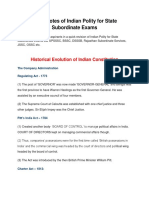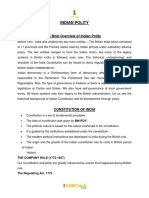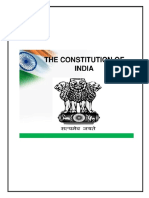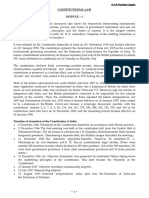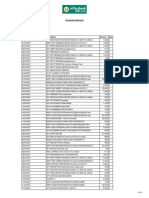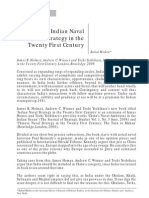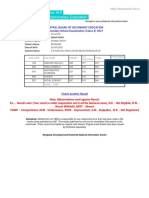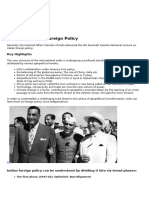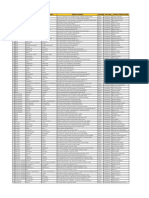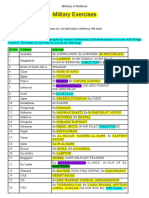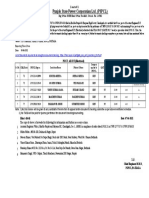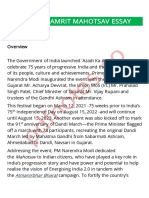0% found this document useful (0 votes)
68 views8 pagesPolity For UPPSC
The document outlines various significant legislative acts and constitutional developments in India from the Amending Act of 1781 to the Government of India Act of 1935, detailing changes in governance, jurisdiction, and the establishment of legislative bodies. It also discusses the formation and functioning of the Constituent Assembly, the drafting of the Constitution, and key articles related to fundamental rights and duties. Additionally, it covers the structure and roles of the Union, Parliament, Supreme Court, and other governmental institutions, highlighting the evolution of India's political framework.
Uploaded by
shivamkumarmishra03Copyright
© © All Rights Reserved
We take content rights seriously. If you suspect this is your content, claim it here.
Available Formats
Download as PDF, TXT or read online on Scribd
0% found this document useful (0 votes)
68 views8 pagesPolity For UPPSC
The document outlines various significant legislative acts and constitutional developments in India from the Amending Act of 1781 to the Government of India Act of 1935, detailing changes in governance, jurisdiction, and the establishment of legislative bodies. It also discusses the formation and functioning of the Constituent Assembly, the drafting of the Constitution, and key articles related to fundamental rights and duties. Additionally, it covers the structure and roles of the Union, Parliament, Supreme Court, and other governmental institutions, highlighting the evolution of India's political framework.
Uploaded by
shivamkumarmishra03Copyright
© © All Rights Reserved
We take content rights seriously. If you suspect this is your content, claim it here.
Available Formats
Download as PDF, TXT or read online on Scribd
/ 8







